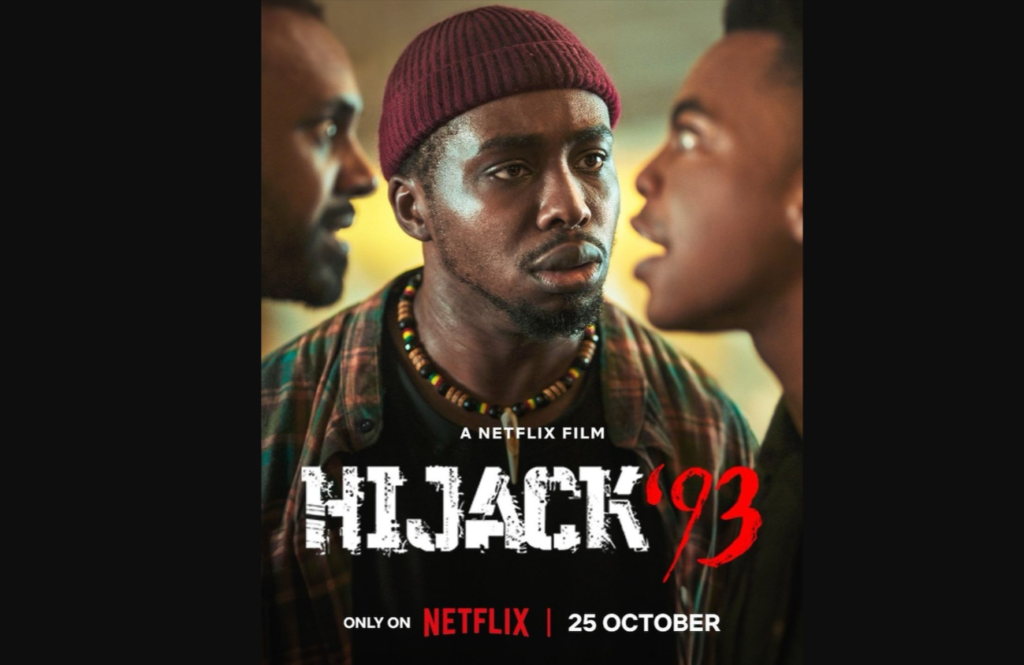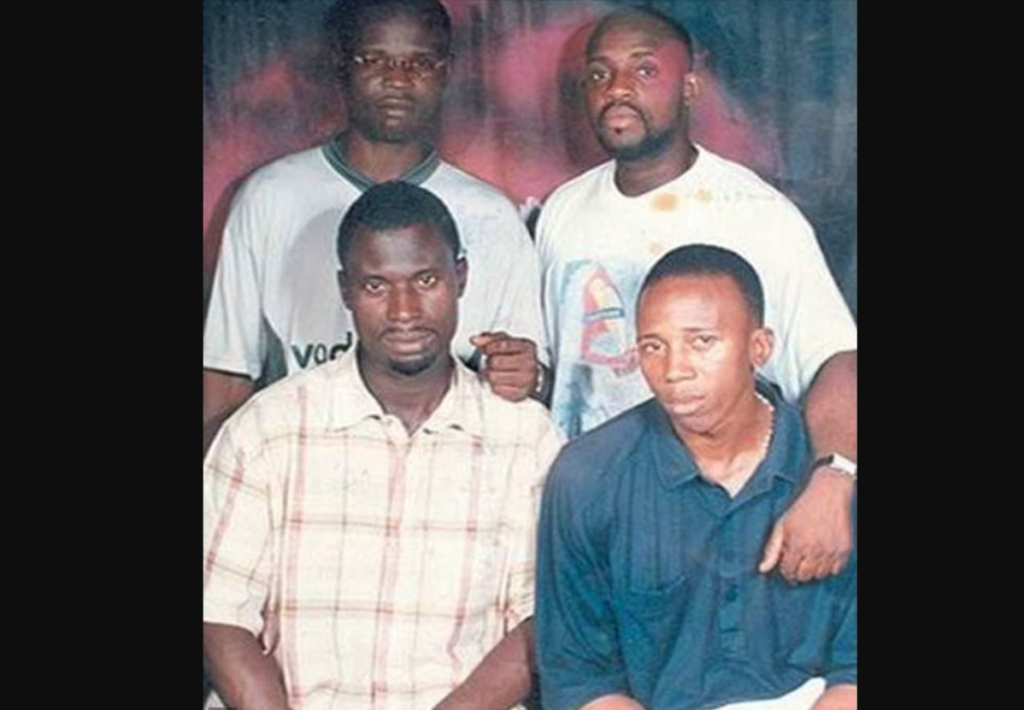The True Terror of Hijack ’93: The Story Behind the Netflix Series

The True Terror of Hijack ’93: The Story Behind the Netflix Series
Introduction to the Hijack ’93 Incident
On October 25, 1993, a shocking event unfolded in the skies of Nigeria that would later be known as one of the country’s most infamous plane hijackings. Four young men, barely out of their teenage years, took control of a Nigeria Airways flight en route from Lagos to Abuja, turning a routine trip into a hostage situation that gripped the nation for four days. The incident, which ended in tragedy with the death of a crew member, was politically motivated, with the hijackers seeking to challenge the military government that had annulled the results of Nigeria’s presidential election earlier that year.
This real-life incident is now the subject of a Netflix film titled Hijack ’93, which dramatizes the tense days of the hijacking and sheds light on the motives behind the hijackers’ actions. With a runtime of 1 hour and 26 minutes, the film, directed by Robert O. Peters, attempts to portray the chaotic and harrowing events of those four days, while exploring the broader political climate that led to the hijacking.
Political Tensions in Nigeria in the Early ’90s
To understand the significance of the Hijack ’93 incident, one must first consider the political landscape of Nigeria in the early 1990s. The country had been under military rule for nearly a decade, following a coup in 1983 that ousted the democratically elected government. For years, Nigeria’s citizens lived under the shadow of military dictatorships, with leaders such as General Ibrahim Babangida holding power.
In 1993, hopes were high for a return to civilian rule. The country held its first presidential election in over a decade, with Moshood Kashimawo Olawale (MKO) Abiola emerging as the clear winner. Abiola’s victory in the June election was seen as a step towards democracy, but these hopes were quickly dashed when the military government annulled the results, citing concerns about electoral fraud and national security.
The annulment of the election led to widespread protests and unrest across the country. Many Nigerians saw the military’s refusal to honor the election results as an attempt to cling to power indefinitely, and the tension between the government and the populace grew steadily. It was in this climate of political frustration and desperation that four young men, inspired by the Movement for the Advancement of Democracy (MAD), decided to take matters into their own hands — by hijacking a plane.
The Hijacking: A Desperate Act of Protest
The hijackers — Richard Ajibola Ogunderu, Kabir Adenuga, Benneth Oluwadaisi, and Kenny Rasaq-Lawal — were all between the ages of 16 and 18. Despite their youth, they were determined to make a bold statement against the military regime. Armed with a fake gun and a plan to douse the plane with fuel, they boarded the Nigeria Airways flight on October 25, 1993, with 193 passengers on board.
Once the plane was in the air, the hijackers quickly took control. Ogunderu, who was considered the leader of the group, entered the cockpit and demanded that the pilot divert the plane to Germany. However, the plane did not have enough fuel to reach Europe, and instead, the hijackers settled on landing in Niamey, Niger.
As they took control of the plane, the hijackers distributed statements to the passengers outlining their demands. They called for the reinstatement of MKO Abiola as the rightful president of Nigeria, the return of embezzled government funds to the state, and the reopening of several newspapers and universities that the military government had shut down. In their minds, they were not terrorists but freedom fighters, standing up to a corrupt and oppressive regime.

The Tense Negotiations
For the next four days, the hijackers held the passengers and crew of the Nigeria Airways flight hostage in Niamey. Negotiations with the Nigerien authorities were tense, as the hijackers threatened to set fire to the plane if their demands were not met. They had smuggled six liters of fuel onto the plane and were prepared to use it to commit an act of self-immolation, along with killing everyone on board.
Despite the danger, the hijackers released some of the passengers over the course of the standoff. Women and children were freed within the first few hours, and the following day, they released 129 passengers, including China’s vice president, Rong Yiren. However, they refused to release the crew or Nigerian government officials, whom they viewed as representatives of the military regime they were fighting against.
At one point during the negotiations, Ogunderu spoke with a BBC journalist, using the opportunity to broadcast the hijackers’ demands to the world. He reiterated their ultimatum: if MKO Abiola was not sworn in as president within 78 hours, they would set the plane on fire. Although their threats were serious, Ogunderu later admitted that the 78-hour deadline was meant to scare the authorities into action, and that the hijackers had no intention of killing the passengers.
The Tragic End to the Standoff
By October 28, 1993, the situation had reached a breaking point. The Nigerien authorities, fearing that the hijackers might follow through on their threats, decided to storm the plane. In the middle of the night, a team of armed forces moved in to take control of the aircraft. What followed was a violent exchange of gunfire, with over 300 shots fired during the raid.
Sadly, one crew member, Ethel Igwe, lost her life in the operation. Ogunderu was also injured during the raid, although he survived. The hijackers were captured and taken into custody, ending the four-day ordeal.
After their capture, the hijackers were sentenced to prison in Niger, where they spent over nine months in a small cell that also served as their toilet. Despite the harsh conditions, they remained defiant, believing that their actions had been justified as part of the larger struggle for Nigerian democracy.
The Aftermath and Legacy of Hijack ’93
Following the end of the hijacking, Nigeria’s political situation continued to deteriorate. General Sani Abacha, who would become one of the country’s most notorious dictators, took power in November 1993, just one month after the hijacking. Abacha’s regime was marked by widespread human rights abuses, corruption, and political repression, and it wasn’t until his death in 1998 that Nigeria began to transition towards civilian rule.
As for the hijackers, their actions were viewed with mixed reactions in Nigeria. Some saw them as heroes who had stood up to the military government at great personal risk, while others condemned their methods, particularly the loss of innocent life during the raid. Over time, however, the hijackers have been remembered more for their courage than for the violence that accompanied their actions.
In interviews given years after the incident, Ogunderu and his fellow hijackers expressed regret over the death of Ethel Igwe but remained unapologetic about their decision to hijack the plane. They saw their actions as part of a broader fight against tyranny, and many in Nigeria have come to share that view. The hijacking, while tragic, was a symbol of the growing frustration with military rule, and the bravery of the young men who dared to challenge it has not been forgotten.
The Netflix Film Hijack ’93: A Dramatic Retelling
In 2024, Netflix released Hijack ’93, a film that brings the story of the Nigeria Airways hijacking to a global audience. Directed by Robert O. Peters and written by Musa Jeffery David, the film attempts to capture the tension and drama of the four-day ordeal, while also exploring the political motivations of the hijackers.
The film stars Nnamdi Agbo as Richard Ogunderu, along with a talented cast that includes Nancy Isime, Jemima Osunde, Sharon Ooja, and John Dumelo. With a runtime of just under 90 minutes, Hijack ’93 condenses the events of the hijacking into a fast-paced thriller, focusing on the psychological and emotional toll of the standoff on both the hijackers and the hostages.
While the film has yet to receive widespread critical reviews, it has already generated significant interest among audiences, particularly in Nigeria. Many viewers have praised the film for its portrayal of the hijackers as complex, conflicted individuals, rather than one-dimensional villains. Others have noted the film’s attention to detail in recreating the political climate of Nigeria in the early 1990s, which adds depth to the story.
Where Can I Watch the Hijack ’93?
Watch the Hijack ’93 here on Netflix
Hijack ’93 | Official Trailer
Reception and Audience Reactions
At the time of its release, Hijack ’93 had not yet garnered enough reviews to generate a Metascore on Metacritic, and the film’s Tomatometer rating on Rotten Tomatoes remained similarly blank. However, early audience reactions have been mixed, with some praising the film’s tension and pacing, while others criticized it for simplifying the events of the hijacking.
One area where the film has received particular attention is its portrayal of the hijackers. By focusing on their motivations and the political context in which they operated, Hijack ’93 offers a more sympathetic view of the young men than might be expected in a traditional thriller. This has led some viewers to question whether the film glorifies their actions, a debate that is likely to continue as more people watch the film.
Additionally, the film’s relatively short runtime has been a point of contention for some viewers, who feel that the story could have been explored in greater depth. Given the complexity of the political situation in Nigeria at the time, as well as the personal stories of the hijackers and hostages, some audiences may have preferred a longer, more detailed exploration of the events.
Conclusion: The Enduring Impact of Hijack ’93
The story of the Nigeria Airways hijacking in 1993 remains one of the most dramatic and controversial events in the country’s recent history. For four days, the nation held its breath as four young men took control of a plane in a desperate bid to challenge the military government. Although their actions ended in tragedy, the hijackers have since been remembered by many as symbols of resistance against dictatorship.
With the release of Hijack ’93 on Netflix, this powerful story has been brought to a global audience, offering viewers a chance to reflect on the motivations, risks, and consequences of challenging oppressive regimes. While the film may not provide all the answers, it serves as a reminder of the lengths to which people will go in their fight for justice and freedom, even when the odds are stacked against them.
As the story of Hijack ’93 continues to be discussed and debated, both in Nigeria and around the world, it stands as a testament to the courage of those who stand up against tyranny, regardless of the personal cost.
